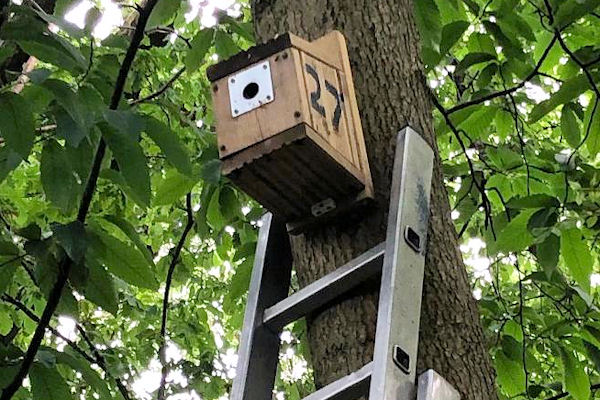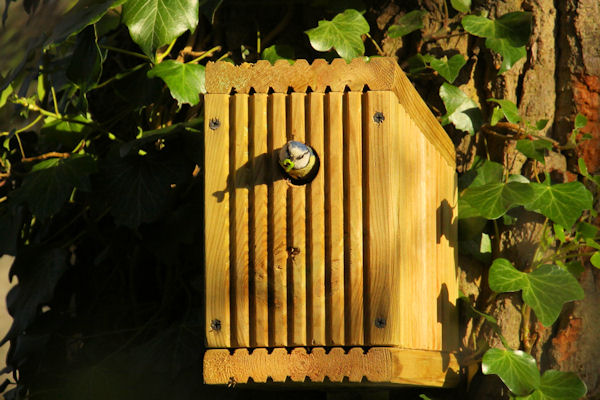Nest box update 2022. Part 2
In late September, a few bright days brought the opportunity to clean and repair the nest boxes in Bicknor Wood. Thank you to Linda who helped and identified the False Widow Spiders.
Day two, reported here, continued from box 18 through to box 28.
There are 28 visible boxes that are numbered and sponsored. If you sponsored a box this year, thank you very much for providing much needed habitat for the birds and income for the upkeep of the wood. There are a few more that are not easily visible from the paths. These are open-fronted boxes that are favoured by Robins and Wrens, but their easy accessibility makes them prone to predators, so they are tucked away in thickets and undergrowth.
Out of 36 boxes, 26 showed signs of nesting attempts. A very satisfying result of 72%.
Some had obviously played host to wildlife apart from birds. Spiders, wasps, earwigs, slugs, moths, butterfly, woodlice, millipedes, centipedes and beetles were all seen in, on, or behind the boxes. We were surprised at what a productive sanctuary was provided by the small gap between box and tree trunk.
Some creatures will use the boxes to shelter as the weather becomes less clement. Whilst cleaning the boxes, we tried as much as we could not to evict any creatures that may rely on the shelter of the box to survive through the winter.
Box 19 Nesting attempted. Damaged box replaced. Nesting attempt abandoned for unknown reason.
Box 20 No nesting attempt.
Box 21 Wasp nest. Replaced and repositioned.
Box 21A Robin nest. A robin's nest is cup-shaped and usually only reaches to the lip of the open-fronted box.
Box 22 No nesting attempt. Damaged box replaced.
Box 23 Great Tit nest. Fledging assumed. Bug larvae spinning silk cocoons in space behind box. Beetle and spider.
Box 24 Lots of bird droppings, but no nesting attempt.
Box 25 Snoop. Blue Tit nest. Fledged on May 15th. This box will have the opportunity to dry out after being cleaned.
Box 26 No nesting attempt. White-shouldered House Moth.
Box 27 Blue Tit nest. Fledged on 16th May
Box 28 Great Tit nest. Fledged on 16th May.
Box 50 Robin nest
Other birds observed building nests and/or feeding young in the wood include Great Spotted Woodpecker, Blackbird, Dunnock, Chiffchaff, Magpie, Woodpigeon, Collared Dove and Mistle Thrush.
Birds that have exhibited behaviour consistent with breeding attempts are Song Thrush and Blackcap.
14 species of bird may have bred in the wood this year. Unfortunately the Nuthatch and Treecreeper were seen very infrequently this season and did not show any signs of breeding when they were noted.




.jpg)
.jpg)
.jpg)
.jpg)
.jpg)




Comments
Post a Comment